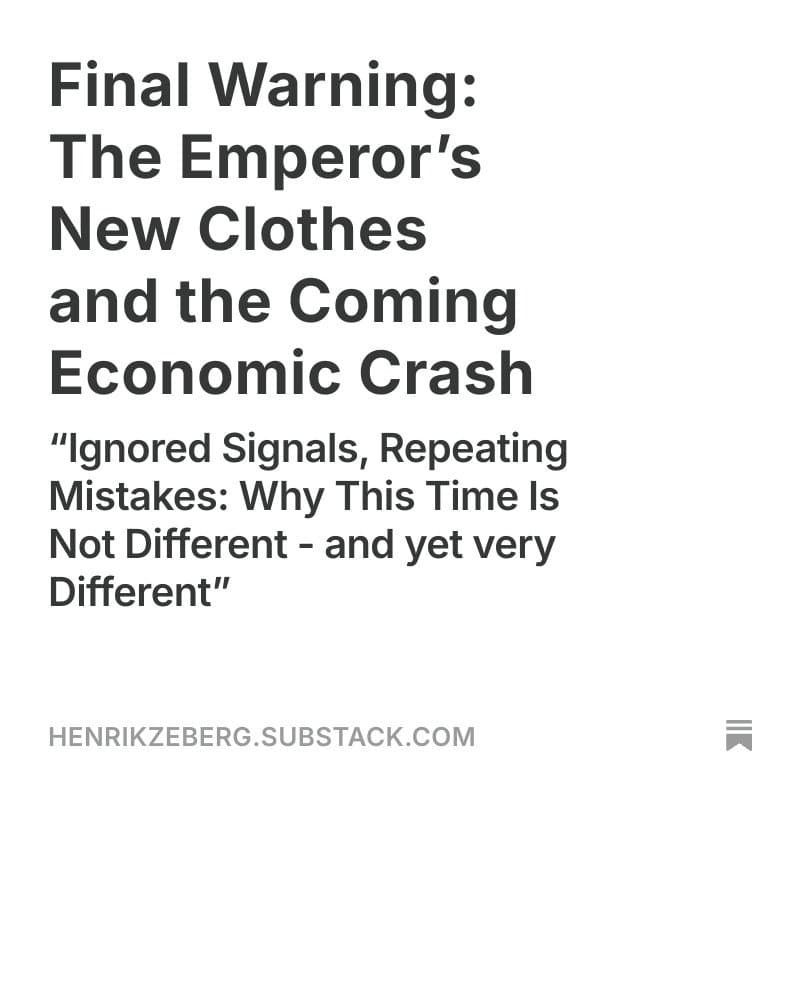Macro Economist Warns AI Enthusiasm Masks Deepening U.S. Economic Stress

Henrik Zeberg, Head Macro Economist at Swissblock, issued a stark warning that the current focus on Artificial Intelligence's transformative potential overlooks significant and immediate economic challenges facing the United States consumer. Zeberg, known for his data-driven macroeconomic analysis and challenging conventional wisdom, highlighted a disconnect between market optimism and underlying economic realities.
"Sitting here watching AI is like sitting among the first-class passengers on the Titanic saying everything is fine because our feet aren’t wet. The problem is in second and third class, and it’s happening now," Zeberg stated in a recent social media post. He emphasized that while AI is a major technological leap, it does not offer an immediate solution to the current economic strains impacting households.
The economist pointed to persistent inflation and a struggling housing market as key indicators of consumer distress. "Prices are up 20% since 2020. Housing affordability is in the gutter. Existing home sales are at multi-decade lows," he noted. Recent data from the National Association of Realtors (NAR) corroborates this, showing existing home sales fell to a seasonally adjusted annual rate of 3.79 million in October 2024, the lowest since 2010, largely due to high mortgage rates and tight inventory.
Consumer spending, while showing some resilience, also indicates caution. Reports from McKinsey and Bank of America suggest consumers are increasingly engaging in "trade-down" behaviors and remain concerned about rising costs, particularly for essentials. This cautious sentiment aligns with Zeberg's view that "This weakness in the U.S. consumer is significant, and AI doesn’t wave that away."
Zeberg further cautioned about the potential for AI to exacerbate current economic woes, stating, "In fact, if demand isn’t there, AI could accelerate layoffs." While many experts predict AI will create more jobs than it displaces in the long term, the short-term impact includes automation of routine tasks, which could lead to job displacement in an already weak demand environment. His analysis underscores that the long-term benefits of AI should not distract from addressing the immediate economic pressures on the average American.